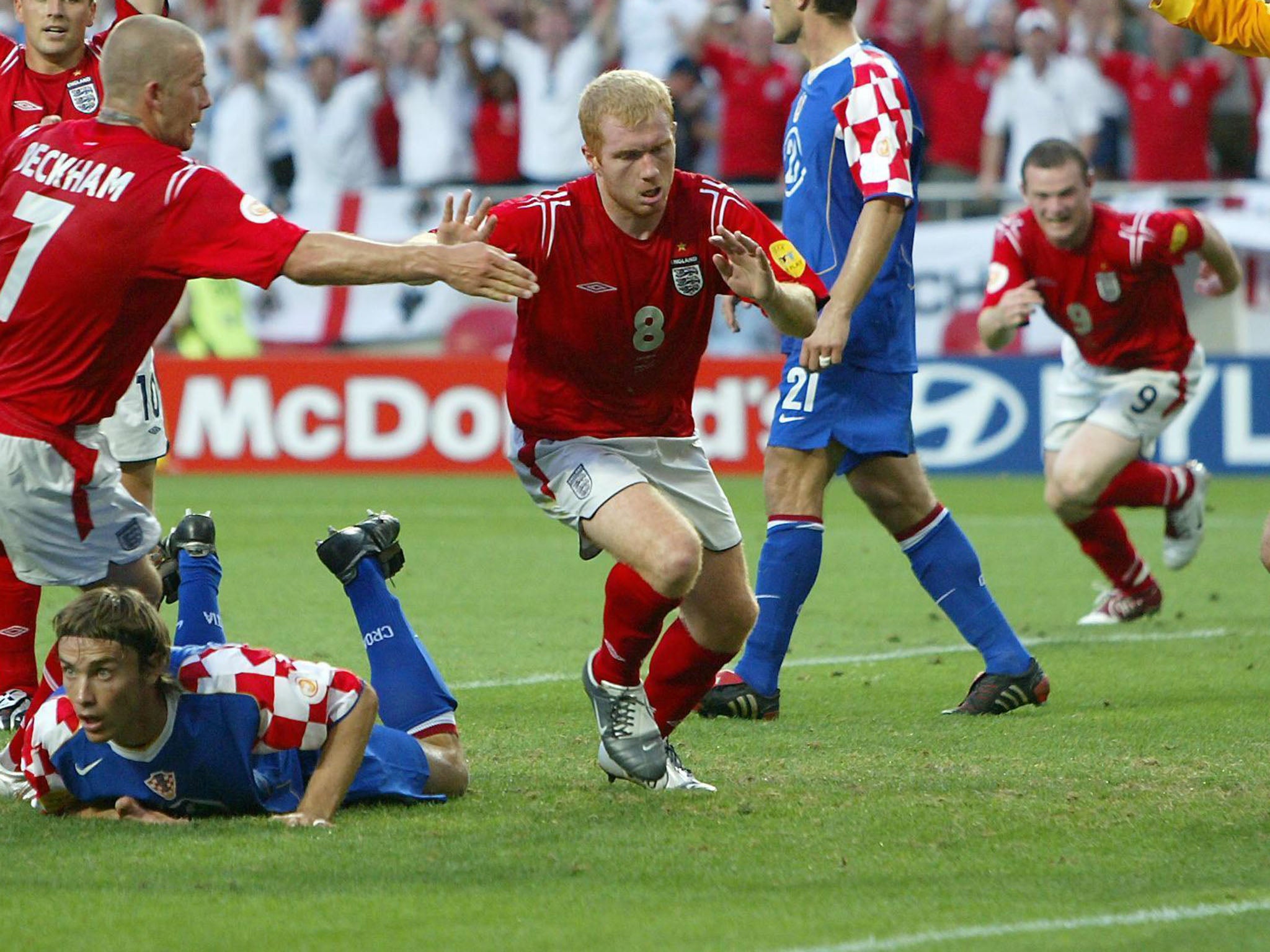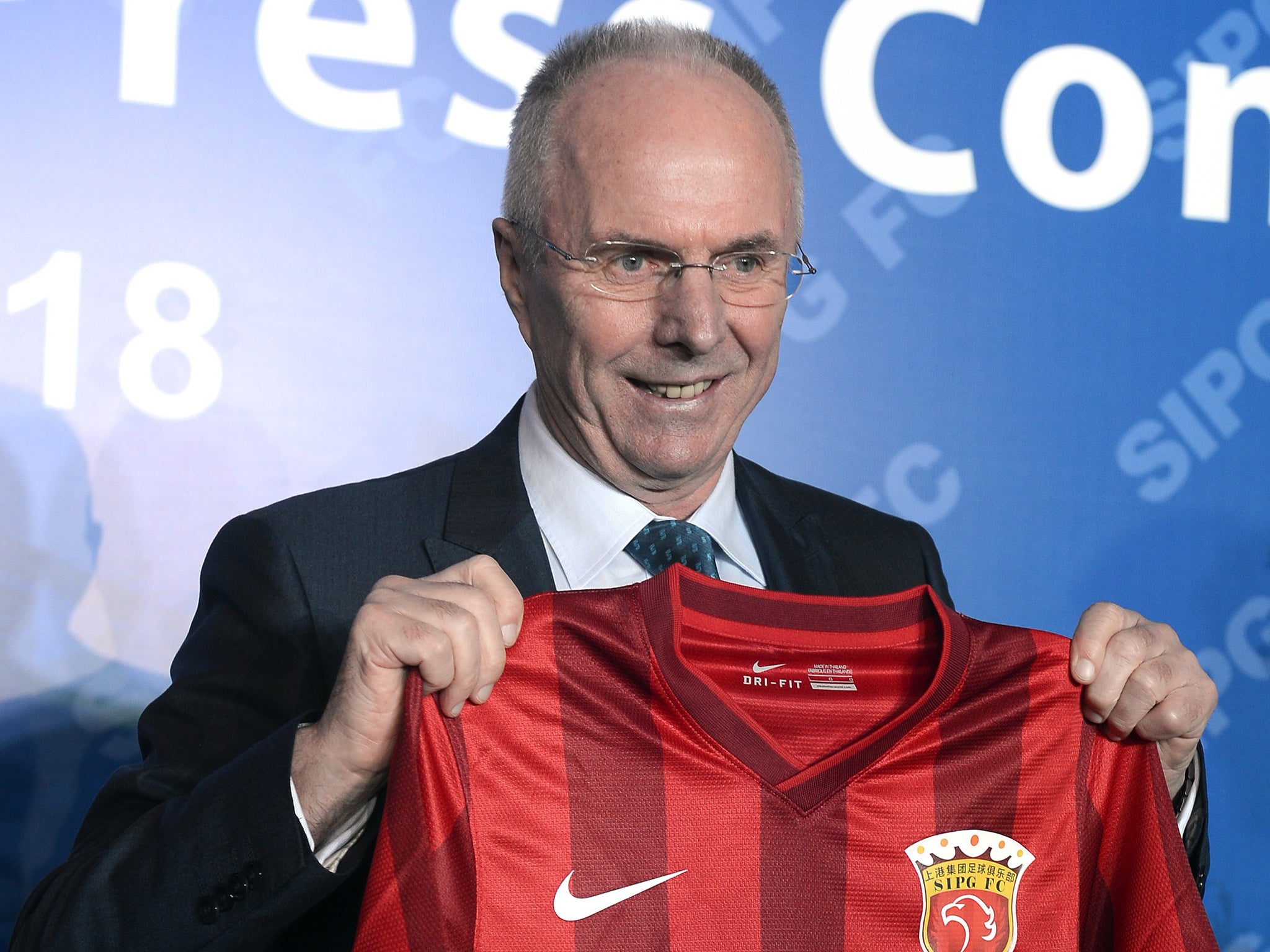Twice a World Cup manager with England, Sven-Goran Eriksson dispels some myths about his time in charge
Exclusive interview: The former England manager sits down to talk past, present and future
Sven Goran Eriksson doesn’t seem to have been following developments in the English media that closely. But after being given a quick précis of the most recent Raheem Sterling farrago, his brow furrows and a familiar sensation starts to prickle.
There’s a big sigh, and then: “I never understood that. Sterling - you can never say he’s not a great football player. That’s what he’s famous for. Just be happy about that, if you’re English. He can win the World Cup for you. Don’t try to disturb him, putting out that shit. That has nothing to do with football. If he wants to spend money or do whatever he wants to do…that’s nothing to do with the game.
“When Beckham was sent off, and Rooney in 2006 - OK, criticise them for that. That was bad. But that’s it. Don’t try to find other reasons, or bring up stories - half-true, not true. You make mistakes sometimes, and the first to regret it was Beckham or Rooney, for sure. I’m sure they didn’t sleep for nights after that. Leave it at that.”
It’s about as close as Eriksson gets to animated, the rest of the time exactly as implacable as you’d expect. And you can understand it from a man whose relationship with the English media has been, shall we say, mixed.
Managing the England football team in the era of the ‘Golden Generation’ didn’t look especially fun, particularly at the two World Cups Eriksson took them too, given the pressure placed on the team - by the media, the general public and the players themselves.
“The expectation became bigger,” he says, when asked what changed the most during his five years in charge. “That’s gone down now, and that’s very good for the England team. And good for people generally too. Don’t think you’ll travel to Russia and easily win the World Cup. If you can reach the quarter-finals or semis, then great!”
The latest man charged with wrangling those (now diminished) expectations was a player under Eriksson. Gareth Southgate might have been the man who compared Eriksson to Iain Duncan-Smith, but there doesn’t seem to be any enmity: indeed, he speaks quite warmly about someone he has previously described as a “thinking football man.”
“He was thinking about not only the result, but about football,” Eriksson says. “He came to me one day to ask what he could do better, to be a regular player. He was only one of two players to ask that.”
Does he remember the other? “I was sitting in Soho Square, in my office, and the receptionist called me up and said I have a football player here who wants to speak to you. ‘He says his name is Joe Cole.’

“He came up and said ‘I was out shopping with my girlfriend, and thought I would come up and see you.’ It was before he was a regular - I had picked him a few times, but he said ‘Boss, what should I do to be better?’ I don’t remember what I told him - work hard, don’t be worried, you’re in my thoughts for the next squad. He was another thinker.”
Eriksson is pretty hard on himself about 2006, the tournament he concedes his England side should have been criticised for not doing better in. But he doesn’t accept the notion put forward by Rio Ferdinand, Frank Lampard and Steven Gerrard, that the squad was divided because they all played for high-profile, rival clubs.
“I never noticed that. If you see two players coming from the dressing room, or from lunch, it’s normally two Liverpool players, or two Chelsea players, because they know each other. But I don’t believe that [they couldn’t play together.]”

He offers a similar answer to the story Kieron Dyer told in his book about an unnamed substitute actively hoping he wasn’t brought on during an England game, knowing the criticism that would come if he made a mistake. “If it’s the truth, it’s sad. I never felt I had a player on the bench who didn’t want to come on.”
Eriksson hasn’t managed for a year or so, since leaving Shenzhen FA in China. He’s keeping busy though: he runs down a lengthy list of TV work he’ll be doing over the following weeks, and during the World Cup he will feature on an online series for Paddy Power called Paddy's Boat Party - broadcast live on Facebook, Twitter and YouTube throughout the tournament.
The country of his most recent employers won’t be at this World Cup, but Eriksson thinks that will change soon. “In 15 years time, China will play in the semi-final or the final of the World Cup,” he says. “They invested a lot of money in coaches and big players. But what they’re really doing is investing in grassroots football.

“Five years, ten years ago, maybe one or two in ten children will have kicked a ball. Now, since five years ago, the president says ‘football in every school - the priority is football.’ So now every kid plays football, There’s 1.3bn people, so if talented players don’t come out from that, I would be extremely surprised. In ten years time, they will be a superpower.”
Eriksson seems more engaged when discussing China, rather than England. You get the sense of a man slightly baffled that his 40-year managerial career is defined by one job. And also one who still can’t get his head around the country’s fascination with the affairs of others. “You could easily say ‘Don’t look at women,’” he says, when asked what one thing he wishes he knew in 2001. “You could say there’s something wrong in this country that you talk so much about the private life.”
They were always an odd couple, Eriksson and the England team. Obviously dissatisfied with how it ended, there’s a melancholic tone (or, admittedly, perhaps a weariness) when he talks about it. Particularly as his career since hasn’t exactly gone from strength to strength since.
But, every so often, the childlike enthusiasm for the game appears in the eyes of this 70-year-old Swede. “The World Cup is the greatest thing you can do,” he says. “Being part of it is like a big party.”
Join our commenting forum
Join thought-provoking conversations, follow other Independent readers and see their replies
Comments
Bookmark popover
Removed from bookmarks